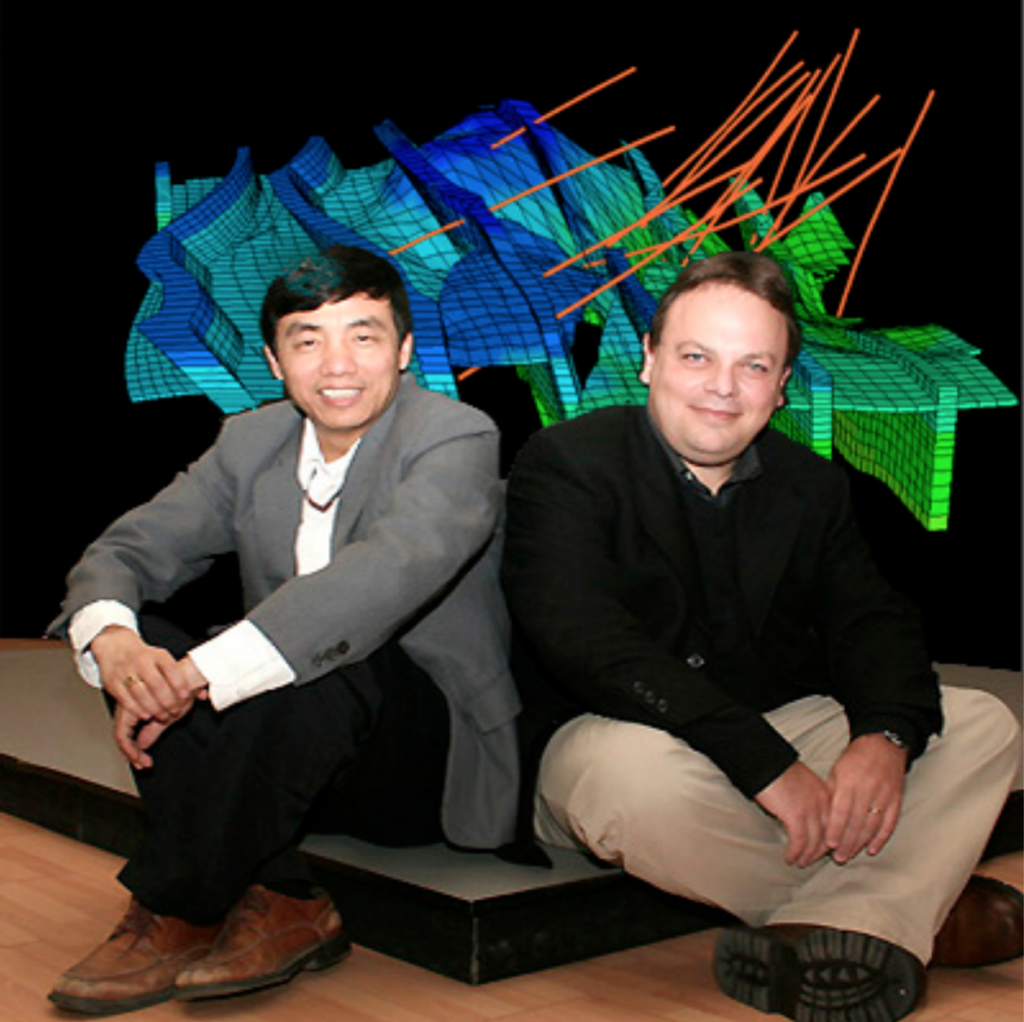
John Chen (left) and Mario Costa Sousa are the latest research chairs in the Informatics Circle of Research Excellence (iCORE). Behind them is a 3D representation of a reservoir with directional wells. / Photo: Ken Bendiktsen
Creating software that allows users to gain insightful information from vast amounts of oil and gas reservoir data is a challenging problem. Two University of Calgary researchers—experts in the complex field of computer modelling and visualization—are working to help find a solution.
John Chen, of the U of C’s Schulich School of Engineering, and Mario Costa Sousa, of the Faculty of Science, received funding today through a public-private partnership. They will become the latest research chairs in the Informatics Circle of Research Excellence (iCORE). ICORE is part of Alberta Innovates − Technology Futures, a provincial government agency aimed at promoting and supporting innovation in Alberta.
Chen, the new iCORE/Foundation CMG Industry Research Chair in Reservoir Modelling, is a mathematician who applies his knowledge to engineering problems in oil and gas. He builds complex computer models of oil and gas
reservoirs, providing four-dimensional images of what’s going on underground.
Chen’s work helps predict the performance of oil and gas fields and improve recovery methods in terms of efficiency and environmental impact. His research also has applications for green energy solutions such as coal gasification and carbon storage and sequestration.
Costa Sousa, the new iCORE/Foundation CMG Industry Research Chair in Scalable Reservoir Visualization, is an associate professor in the Department of Computer Science. His research on visualization technologies will help improve the economics of exploration, production and recovery, while keeping environmental concerns at the forefront.
Costa Sousa’s work focuses on the challenge of collecting, integrating and managing highly-complex reservoir datasets as well as investigating and developing proper techniques that will help petroleum professionals interactively visualize, explore and analyze such data.
Chen will receive $7 million in cash and in-kind funding over five years from Alberta Innovates – Technology Futures (as iCORE), Foundation CMG and the University of Calgary. Costa Sousa will receive $3 million in cash and in-kind funding over five years from Alberta Innovates − Technology Futures (as iCORE), Foundation CMG and the University of Calgary. The Government of Alberta
established iCORE in 1999 to attract and support world-class researchers in the field of informatics, which includes computer science, electrical and computer engineering, physics, mathematics, wireless communications and artificial intelligence.
Founded in 1978, CMG Reservoir Simulation Foundation (Foundation CMG) promotes and financially supports research and development and students through research grants at universities.